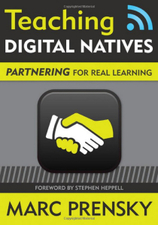There are so many things that we could discuss about skills and what it takes to lead a world full of technology….and technology that, most of the time, consumes us. Can you honestly answer how many times you’ve used technology today? Have you been on your phone? Your tablet? Your laptop? These are just a few simple pieces of technology that most of us use on a daily basis but there are many more.
We are going to focus on the question:
What are 21st Century Skills?
There are three different categories that these skills fall under. 1. Learning and Innovation Skills. 2. Information, Media, and Technology Skills. 3. Life and Career Skills. Under the learning and innovation skills falls critical thinking and problem solving; communication and collaboration; and of course, creativity and innovation. I think some of the most important skills that our students need to have is critical thinking and problem solving. If we can push our students to strive to better these skills, we will have a world of great leadership one day. As well as many people who know how to take care of themselves no matter what the situation is. Communication and collaboration is also a key factor. With communication and collaboration, our students learn to respect other people’s opinions and ideas. Our students learn to work together to form one solution to a problem that has all of their ideas put into action.
With Information, Media, and Technology skills, these are skills our students will learn to be able to access information efficiently and effectively and also evaluate information more critically and competently. Our students will be able to use information accurately and creatively for the problem at hand and manage the flow of information from a wide variety of sources. Students will be able to take media and understand both how and why media messages are constructed and why they are created. Our students will be able to examine how individuals interpret messages differently. While using media, our students will be able to understand and utilize the most appropriate media creation tools. Our students will begin to learn how to apply technology effectively. Students will learn about digital technologies and how they work and understand the ethical and legal issues surrounding digital technology.
Under Life and Career Skills, our students will be learning to be more flexible with their time and with the way they learn. Our world is changing around us each and every day and we all have to be ready for change and be able to adapt to it. Students will also be learning to take more initiative for their education and life. They will be learning to direct themselves in the direction they want to go in life. They are the ones who determine their future! Our students will be learning how to socialize not only with their peers around them, but by communicating with peers their age all around the world. It is so imperative that our students learn this skill because the USA is exchanging with and learning from other countries on a daily basis! Our students need to learn how to communicate properly from people all over the world because they get out in the real world, and their careers, they will be facing communications of all types. Productivity and accountability from our students is going to be crucial. Our students are being pushed to be held accountable for their learning and their education. Students will learn to be more productive in their work by producing more thorough and in depth work where critical thinking took place. On top of all these skills, our students are learning to be leaders. Our students are learning that they are our future! They will be the top dogs one day and it is so very important that they step up and learn how to lead and not just sit back and follow any more.
P21 skills are skills that our students need to have and learn to have in order to make it in our ever so adapting technology world!
